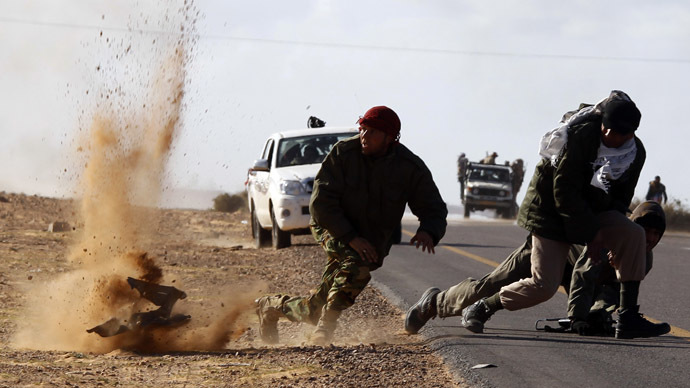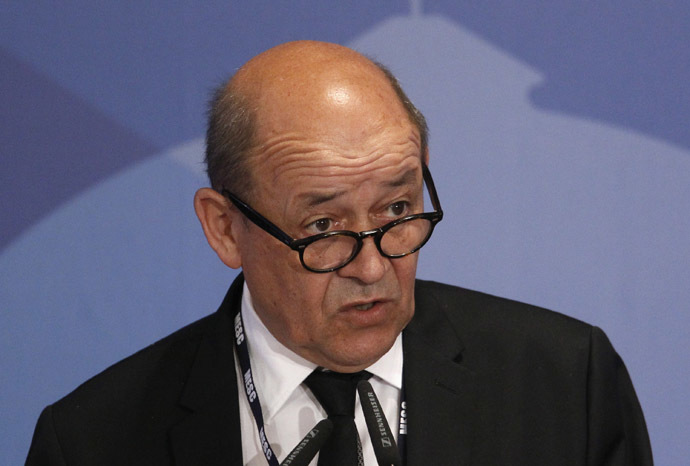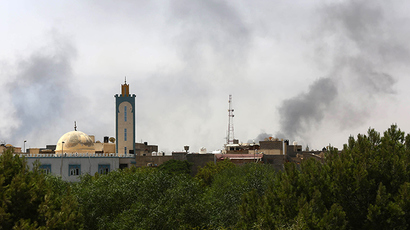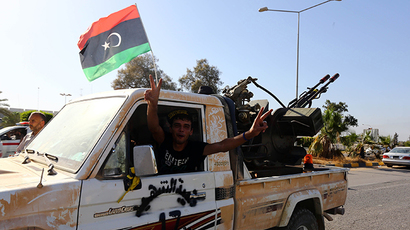France urges new Libya intervention, calls it 'terrorist hub' on Europe's doorstep

The world must act in Libya as it is quickly turning into a major “terrorist hub” on Europe’s doorstep, French Defense Minister Jean-Yves Le Drian warned. France played a key role in the 2011 NATO intervention in Libya that led to the current chaos.
It’s high time to “sound the alarm about the seriousness of
the situation in Libya,” Le Drian said in an interview with
Le Figaro newspaper.
“The south [of Libya] is a sort of hub for terrorist groups
where they come to re-supply – including with weapons – and
re-organize. In the north, the political and economic centers of
the country are now at risk of falling under jihadist
control,” he said.
Le Drian commented that the crisis-hit North African state was
“the gateway both to Europe and the Sahara.”
Libya is a short flight or a boat ride away from Europe, with
just over 1,000 kilometers separating it from Malta and the
Italian island of Sicily in the Mediterranean.
The minister also warned that the country is the region's
“trafficking zone, beginning with human trafficking.”
“We need to act in Libya and mobilize the international
community,” Le Drian said, adding that French troops
stationed in Mali could be moved closer to Libyan borders.
However, to relocate French forces, Paris needs consensus from
Algeria, which doesn’t seem thrilled by the idea.
“We don’t accept a foreign intervention on our borders, we want a
regional solution,” Algerian Prime Minister Abdelmalek
Sellal said over the weekend. “We need a consensus to put in
place a government and institutions capable of governing the
country.”

Egypt’s president, Abdel Fattah al-Sisi, also spoke out against
of involvement of external powers into the North African region.
Another neighbor of Libya’s, Tunisia, also said it was
“opposed in principle to any military intervention in a
country.”
“We have seen the experiences of the past and we have seen that
military intervention has absolutely not led to the installation
of a democratic regime, to the stabilization of the
country,” Nidhal Ouerfelli, a spokesman for the Tunisia
government, said of the events in Libya during the last three
years.
The current turmoil in Libya began after the 2011 NATO airstrikes
helped rebels oust and execute Muammar Gaddafi, who had ruled the
country for over 40 years.
Since then, the interim Libyan authorities have made fruitless
efforts to contain the radical militias, who previously fought
against Gaddafi.
The Islamists have recently captured the Libyan capital, Tripoli,
and most of the country’s second-largest city, Benghazi.
“You have to remember that the chaos in Libya is a direct
consequence of the NATO intervention," Rene Otayek, a
researcher at Bordeaux's Institute of Political Science, told
AFP.














